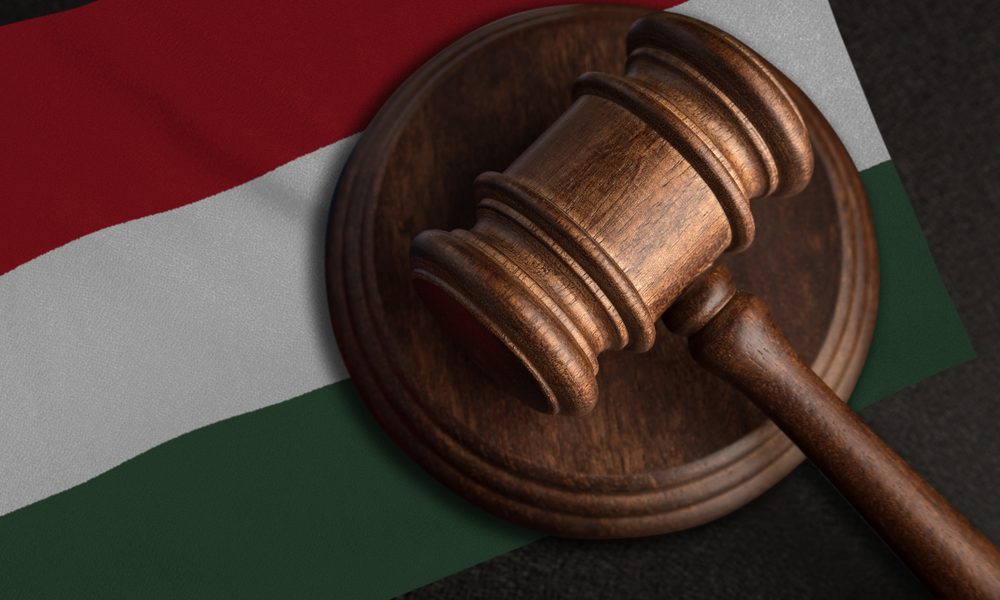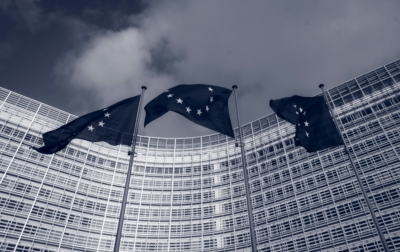The past decade has seen sustained attacks on the EU’s fundamental values by one of its own member states. For the past 13 years, Hungary’s government has launched a barrage of laws aimed to erode its democracy, all while continuing to benefit from EU funds, as well as enriching its cronies through widespread corruption. There is well-documented evidence that it has privileged granting public contracts to its supporters, diverted EU funds to its associates, subdued the country’s judicial system, undermined media freedom and pluralism, demonised non-governmental groups and criminalised some of their activities, eroded academic freedoms, violated the rights of women, refugees, asylum seekers, LGBTQI+ people and other minorities.
Attacks on the rule of law in Hungary are systemic and deeply rooted. Not only do they threaten to unravel decades of democratic progress, but they also pose a direct threat to the European Union’s democratic legitimacy and access to the European Single Market. The EU cannot claim to be democratic if one of its own member states persists in violating the democratic values upon which the EU was founded.
The EU’s response to these developments has so far failed to deter Hungary from continuing to slide backwards into authoritarianism. Hungary has faced numerous Article 7(1) hearings in the Council of the EU and debates in the European Parliament, which have sought to establish that there is a risk of a “serious and persistent breach” of EU values in Hungary—yet no recommendation on this has been issued by the Council for five years and the process remains stuck. Hungary has also been the subject of multiple European Parliament resolutions and been harshly criticised by the European Commission in its various assessments and reports. The repeated and systemic attacks of the Hungarian government on EU values have led to EU funds being frozen and to Hungary being subject to the EU’s rule of law conditionality mechanism.
In total, Hungary’s actions are under scrutiny by three separate instruments: the horizontal and thematic enabling conditions under the EU Charter of Fundamental Rights, which enables access to Cohesion Policy funding; 27 super milestones under the EU’s Recovery and Resilience Fund, which include measures such as combating corruption and rule of law reforms; and the rule of law conditionality mechanism, which imposes measures to protect the EU budget against breaches of the rule of law. While Hungary may have undertaken some cosmetic reforms to unblock its EU funds, analysis by our partners in Hungary shows that these fail to address the remedial measures and reforms required. In fact, the Commission’s own latest assessment is that “despite regular exchanges with Hungary, the Commission considers that Hungary has not addressed the breaches of the principles of the rule of law that led to the adoption of measures by the Council in December 2022 under the budget conditionality mechanism.” The Commission also determined that Hungary had failed to fulfil the conditions it had proposed and committed to remedy. These breaches are related to public procurement, public interest trusts, prosecutorial action, conflicts of interest and the fight against corruption.
The Commission itself, then, has tacitly recognised that Hungary has undertaken multiple breaches of the principles of the rule of law, and failed to address these adequately. This goes beyond the risk of a “serious and persistent breach” of EU values, as stipulated by Article 7(1). This is why Article 7(2) proceedings must be initiated. Article 7(2) would mark the first step to determining the existence of such a serious and persistent breach of EU values, as opposed to the mere risk outlined in Article 7(1). Upon confirming such a breach, which has been evident to the European Parliament since at least 2018 —when the Article 7(1) procedure against Hungary was launched—the Member States would be able to proceed to the second step under Article 7(3), potentially resulting in the suspension of specific membership rights to Hungary, including voting rights in the Council. The last European Council meeting in December once again showcased Hungary’s obstructionist behaviour, including blackmailing the institutions and threatening to veto decisions on key policies. A strong response from Member States, as well as the EU Institutions, to these actions that deliberately undermine the Union’s functioning is now more critical than ever.
We therefore welcome the European Parliament’s resolution on the situation in Hungary and frozen EU funds, calling for Article 7(2) procedure to be triggered. We call on the European Commission and Council to follow suit and uphold the democratic values they are bound to protect. Given that Hungary is set to preside over the Council in June, the institutions must act now before it is given further power to undo democracy from the inside.




